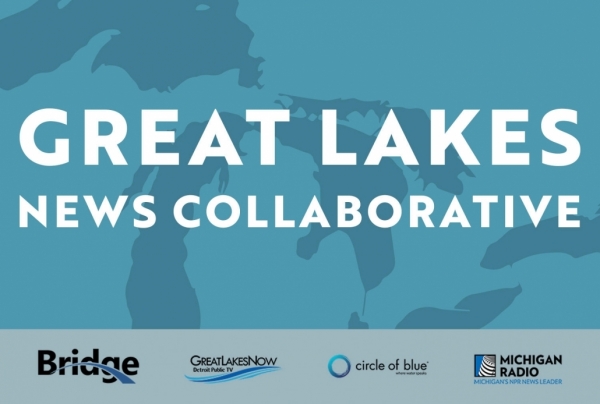FRESH, October 25, 2022: New York Governor Must Decide Fate of Partial Crypto-Mining Moratorium
October 25, 2022
Fresh is a biweekly newsletter from Circle of Blue that unpacks the biggest international, state, and local policy news stories facing the Great Lakes region today. Sign up for Fresh: A Great Lakes Policy Briefing, straight to your inbox, every other Tuesday.
— Brett Walton, Interim Fresh Editor
This Week’s Watersheds
- Enbridge will pay $11 million for water quality violations in northern Minnesota connected to its Line 3 oil pipeline project.
- The federal government awards $18.9 million in harmful algal bloom research and monitoring grants.
- Pennsylvania takes another step toward regulating two PFAS in drinking water.
- Detroit has $100 million to accelerate the replacement of lead drinking water pipes.
The future of the cryptocurrency industry is at stake in New York as the governor considers a moratorium on certain forms of crypto-mining.
“I’m sort of flabbergasted at the lack of a balanced conversation [about] an industry that is using so much energy.” – Assemblymember Anna Kelles, the lead sponsor in the New York Assembly of a bill to place a two-year moratorium on some new cryptocurrency mining operations in the state.
A bill that passed both chambers of the New York Legislature is being framed as a referendum on the future of the cryptocurrency industry in the state. Gov. Kathy Hochul has not yet indicated whether she will sign the two-year moratorium, New York Focus reports. The bill would pause new crypto-mining operations that use fossil fuels, but projects using hydropower would not be affected. All current mining proposals in the state would use hydropower, but the crypto industry is still worried. Industry lobbyists fear that the bill is an entry point for additional restrictions on an energy-hungry venture.
Fresh from the Great Lakes News Collaborative
- Next phase of notorious Superfund cleanup set to begin — Michigan Radio
- Two years after Midland dam failures, still no action on safety reforms — Bridge Michigan
- Surf and turf — Great Lakes Now
The Great Lakes News Collaborative includes Bridge Michigan; Circle of Blue; Great Lakes Now at Detroit Public Television; and Michigan Radio, Michigan’s NPR News Leader. We work together to produce news and information about the impact of climate change, pollution, and aging infrastructure on the Great Lakes and drinking water. This independent journalism is supported by the Charles Stewart Mott Foundation. Find all the work here.
Pennsylvania Is a Step Closer to Regulating Two PFAS in Drinking Water
A state panel voted in favor of setting limits on two PFAS chemicals in drinking water. By a 15 to 3 margin, the Environmental Quality Board agreed to restrict the concentration of PFOA to 14 parts per trillion and PFOS to 18 parts per trillion. The U.S. Environmental Protection Agency is in the process of setting federal standards. It intends to issue a draft proposal by December. Environmental advocates in Pennsylvania told WHYY that the state shouldn’t wait on a federal process that could take another year to finalize. Pennsylvania’s process is not yet complete, either. To come into effect, the regulations still need to be approved by a review board and the Office of the Attorney General.
In context: EPA Warns of Health Problems When PFAS Levels in Drinking Water Are Inconceivably Tiny
In the News
HARMFUL ALGAL BLOOMS: The U.S. government awarded $18.9 million in research and monitoring grants for harmful algal blooms along the marine coasts and Great Lakes. The funding includes research into the effect of acidic waters on bloom formation in the Great Lakes and pilot projects for a national monitoring network.
LINE 3: Minnesota agencies fined Enbridge Energy $11 million for water quality violations linked to the construction of its Line 3 oil pipeline, the Associated Press reports. Those violations include illegal discharges of stormwater into wetlands and releases of drilling mud. The company also drilled into aquifers that it shouldn’t have.
Looking Ahead
LEAD SERVICE LINES: Thanks to state and federal dollars, the Detroit Water and Sewerage Department now has $100 million to accelerate the removal of lead drinking water pipes. The department said the extra money, which primarily comes from federal pandemic relief funds, will increase lead service line replacements from 700 per year to 5,000 annually for the next three years. About 80,000 lead services in the city need to be replaced.
Upcoming Events
- October 26, 2022: Great Lakes Water Authority board meeting —web link
- October 28, 2022: Great Lakes Water Conference, “Public Health and Water” — register
- November 8, 2022: International Joint Commission, Reflections on Great Lakes Water Quality Progress (Lake Superior and the St. Mary’s River) —register
Other News
- How will Onondaga County supply Micron 20 million gallons of water every day?
- Four months after Flint River chemical spill, Lockhart files for bankruptcy
- Pandemic negatively impacted invasive species control in Great Lakes waters
Brett writes about agriculture, energy, infrastructure, and the politics and economics of water in the United States. He also writes the Federal Water Tap, Circle of Blue’s weekly digest of U.S. government water news. He is the winner of two Society of Environmental Journalists reporting awards, one of the top honors in American environmental journalism: first place for explanatory reporting for a series on septic system pollution in the United States(2016) and third place for beat reporting in a small market (2014). He received the Sierra Club’s Distinguished Service Award in 2018. Brett lives in Seattle, where he hikes the mountains and bakes pies. Contact Brett Walton









Leave a Reply
Want to join the discussion?Feel free to contribute!